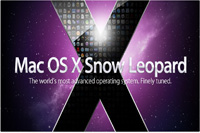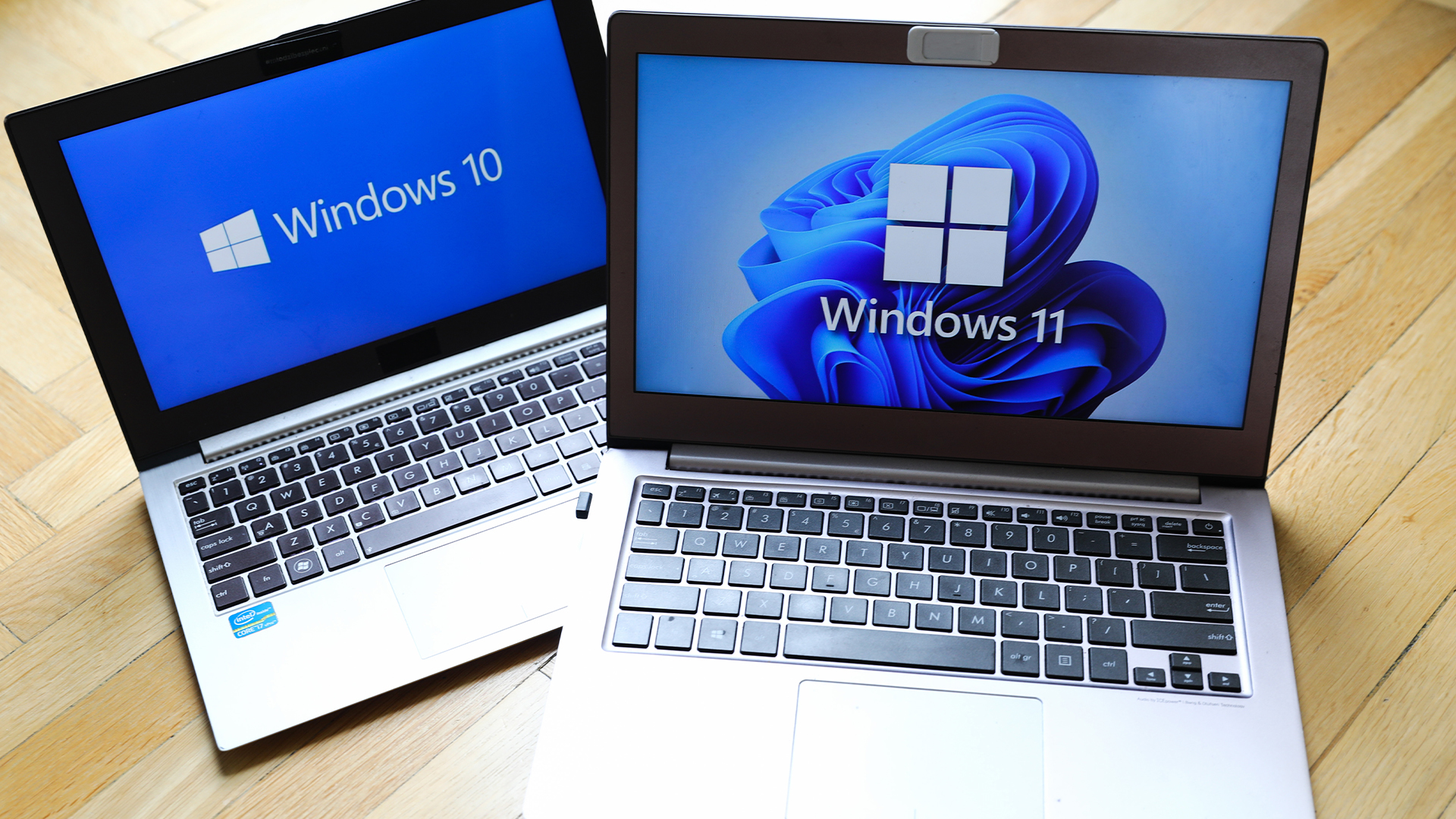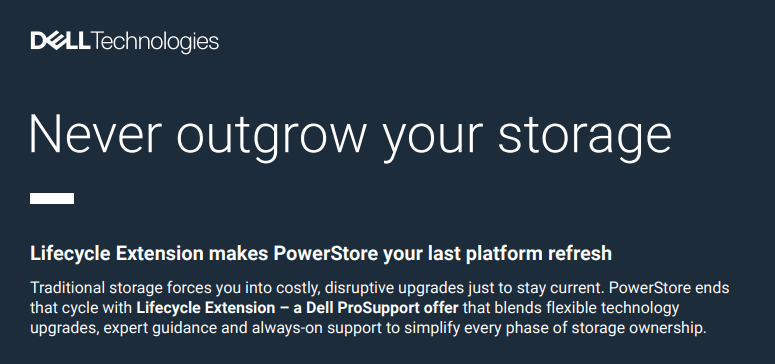Need to Know: Apple's Snow Leopard
We give you the low down on Apple's newly announced next-gen operating system, Snow Leopard.


Sign up today and you will receive a free copy of our Future Focus 2025 report - the leading guidance on AI, cybersecurity and other IT challenges as per 700+ senior executives
You are now subscribed
Your newsletter sign-up was successful
At Apple's worldwide developer conference (WWDC), the company spilled the details on the world's worst kept secret with the iPhone 3G S, but if you're a business person and a Mac user then the improvements to the Mac operating system could be of even more significance to you.
What is Snow Leopard?
The current operating system (OS) is called Leopard, but though Apple has been working on it a long time, the new version doesn't get an all-new name it's now called Snow Leopard. It will come preinstalled on new Macs from September or cost a mere $29 to upgrade.
Remarkably, Apple says that due to a more efficient installer upgrading to it will actually save 6GB of space, and installing will take 45 per cent less time than with Leopard. That's great news if you've got Macs in your business.
I hear it will support Exchange. Is that true?
The big addition is Exchange support directly in the OS out of the box. This means that Mail, the Calendar and the Address book will populate automatically when you enter your Exchange server details no need to use the frankly horrible Microsoft Entourage anymore! And because these are native Mac applications, features such as Spotlight and Quick Look will interact with all your Exchange email and data. This alone will help Apple be taken that bit more seriously for business use.
Isn't it much faster too?
Sign up today and you will receive a free copy of our Future Focus 2025 report - the leading guidance on AI, cybersecurity and other IT challenges as per 700+ senior executives
Apple claims that it has re-written all the major parts of the system to give better support for the 64-bit nature of the OS. This means the memory limit is now effectively limitless (well, 16 billion GB to be precise).
Support for multi-core CPUs has also been improved with a technology it calls Grand Central Despatch, which shuffles processing threads more effectively than before. The result? More responsiveness from the same CPUs.
What about OpenCL?
Another key technology that Apple announced in Snow Leopard is OpenCL. This is an open source programming language for the graphics chip, equivalent to Nvidia's CUDA. This will enable developers to use the power of the graphics chip for complex tasks such as financial modelling, and advanced media manipulation, much faster than the CPU would be able to do it, and it should really speed up many business-focused applications.
The search spotlight function has also been rewritten, so Quick Look preview and straightforward searches will be even quicker which is nice, as time is money.
Other improvements that businesses will like the sound of are the fact that Apple's Time Machine backup speed has been boosted by up to 50 per cent. There's also better support for printer drivers, with Snow Leopard going online to find the best driver.
Apple has also said that connecting to a wireless network in now faster, and you will also now get a signal strength indicator so you can choose the stronger network when you manually join one.
Will it help grow my business?
In a way, yes. Do you do business in China? It's a country with the most internet users, so there's a good chance you might be sooner rather than later.
Snow Leopard now lets you use the trackpad on the MacBooks to enter Chinese characters directly on the screen making it far easier to get them into your documents.
Other small but potentially time saving features are easier copy and paste from PDFs making it possible to copy text across multiple columns and reduced bandwidth requirements for iChat, improving the smoothness and quality of video calls.
And if you need to get footage onto YouTube, you can now do it directly from an enhanced Quicktime, which will also let you make minor edits to your footage.
When is it available?
All in all, it looks like September will be a good time to buy a Mac for your business. We think it's certainly worth the $29 upgrade fee.
Want more background on the latest IT topics? Click here for all the tech cheatsheets in our Need to Know series.
Benny Har-Even is a twenty-year stalwart of technology journalism who is passionate about all areas of the industry, but telecoms and mobile and home entertainment are among his chief interests. He has written for many of the leading tech publications in the UK, such as PC Pro and Wired, and previously held the position of technology editor at ITPro before regularly contributing as a freelancer.
Known affectionately as a ‘geek’ to his friends, his passion has seen him land opportunities to speak about technology on BBC television broadcasts, as well as a number of speaking engagements at industry events.
-
 Windows 10 extended support costs could top $7 billion
Windows 10 extended support costs could top $7 billionNews Enterprises sticking with Windows 10 after the October deadline face huge costs
-
 Tiny11 review: Windows 11 with only 2GB of RAM
Tiny11 review: Windows 11 with only 2GB of RAMReview A version of Windows 11 for older machines that don't meet the full requirements
-
 Red Hat Enterprise Linux becomes foundational operating system for Cohesity Data Cloud
Red Hat Enterprise Linux becomes foundational operating system for Cohesity Data CloudNews New strategic partnership between Red Hat and Cohesity aims to drive innovation in the data security and management space
-
 Ubuntu shifts to four-week update cycle
Ubuntu shifts to four-week update cycleNews Critical fixes will also come every two weeks, mitigating the issues involved with releasing prompt patches on the old three-week cadence
-
 AlmaLinux follows Oracle in ditching RHEL compatibility
AlmaLinux follows Oracle in ditching RHEL compatibilityNews Application binary compatibility is now the aim with 1:1 now dropped
-
 How big is the Windows 10 cliff-edge?
How big is the Windows 10 cliff-edge?ITPro Network With some comparing the upcoming Windows 10 end of life to Windows XP, we ask members of the ITPro Network for their insight
-
 Everything you need to know about the latest Windows 11 updates - from bug fixes to brand-new features
Everything you need to know about the latest Windows 11 updates - from bug fixes to brand-new featuresNews Two new cumulative updates are on the way and will be installed automatically on Windows 10 and Windows 11 machines
-
 How to download a Windows 11 ISO file and perform a clean install
How to download a Windows 11 ISO file and perform a clean installTutorial Use a Windows 11 ISO to install the operating system afresh


